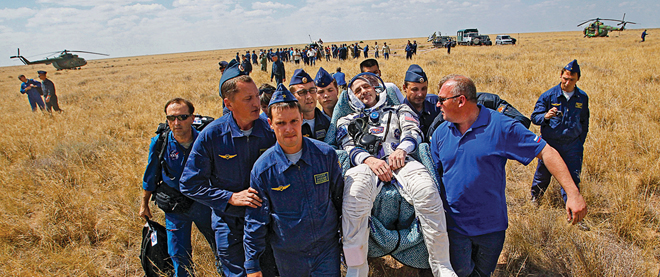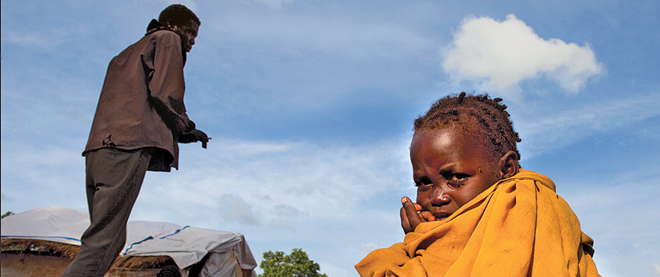Good news, bad news: June 28 – July 5, 2012
Poverty down in Canada, Brodeur re-signs with Devils, and drownings mar Canada Day
Mikhail Metzel/Pool/Reuters
Share
Good news

Taking care of ourselves
Add another star to Canada’s exceptional economic performance during the Great Recession: poverty figures have actually improved. According to recent income data released by Statistics Canada, the percentage of Canadians living in poverty continues to fall—despite a global financial crisis—hitting an all-time low of nine per cent in 2010. That’s down from 12.5 per cent a decade ago. Single mothers, typically the most prone to poverty, actually reported a slight increase in after-tax income in 2010 compared to the previous year, thanks to generous government transfers and higher employment earnings.
Moving right along
The U.S. Supreme Court’s approval of so-called “Obamacare” is a crucial step forward in America’s ceaseless battle over health care. Lack of basic medical coverage for 30 million Americans has fed into the country’s overall sense of economic insecurity and, flawed though this plan may be, it is time for the U.S. to join the rest of the developed world in ensuring basic health care for all of its citizens. If Mitt Romney, the presumptive Republican nominee, chooses to make it a ballot question in this fall’s presidential campaign, so much the better: elections are precisely the venue for issues of this magnitude.
Half-mile of health
Props to the Calgary Stampede for exploring new ways to prevent horse deaths, including electrocardiogram monitoring of animals to head off heart attacks. Some 50 horses have perished since 1986 in the rodeo’s world-famous chuckwagon race—too high a number in an age of modern veterinary medicine. Still, “chucks” is a crowd-pleasing tribute to Canada’s own Wild West history, and it’s worth the effort to keep the tradition alive.
That old Devil
It was a relief to hear that Martin Brodeur, hockey’s greatest goaltender, had re-signed with the New Jersey Devils after dipping a toe in the free-agency waters. So-called “legacy players,” who spend their entire careers with one franchise, are rare in hockey’s modern era. Like Mario Lemieux, Joe Sakic and Steve Yzerman, Brodeur defined the team he played for. Seeing him in another uniform just wouldn’t compute.
Bad news

A nation in limbo
Mexico faces greater uncertainty this week after its presidential election ended amid allegations of voting irregularities, and fears that the victorious Institutional Revolutionary Party (PRI)—which dominated Mexican politics for seven decades—will lapse into its old corrupt ways. PRI leader Enrique Peña Nieto spoke vaguely during the campaign about trade liberalization. But he offered few meaningful remedies for the country’s great crisis: the plague of drug gangs. Meantime, opposition leader Andrés Manuel López Obrador was refusing to concede the election. In short, a country that desperately needs unity and bold leadership must evidently wait longer for both.
Running low
Poverty in general may be on the decline, but newly released stats suggest older Canadians are going bankrupt at an unprecedented pace. Today’s seniors are 17 times as likely to be insolvent as those a generation ago, and the more older Canadians who cannot pay their way, the greater the future strain on the social safety net. That said, we’d do well to tone down the anti-boomer rhetoric: it looks like many seniors are stoically spending their meagre savings rather than asking for help.
Troubled water
Canada Day festivities were marred this week by a spate of drownings—two in the Ottawa River, one in Calgary’s Bow River and another near Pinawa, Man. Even a short Canadian winter can make the draw of sunshine and water irresistible. But the latest tragedies remind us that the universal summer farewell, “have a safe holiday,” is no mere cliché.
When timeouts fail
Another week, another study tracing all manner of social ills to spanking. This one, from the American Academy of Pediatrics, suggests the practice can lead to mental disorders later in life. But the findings are called into question because researchers lumped spanking in with more brutal forms of punishment, like slapping and shoving. Meanwhile, police in Manchester, England, were investigating a group of high school kids for allegedly poisoning their teacher’s waterglass with blackboard cleaner. What “disorders,” we wonder, arise from sparing the hand?